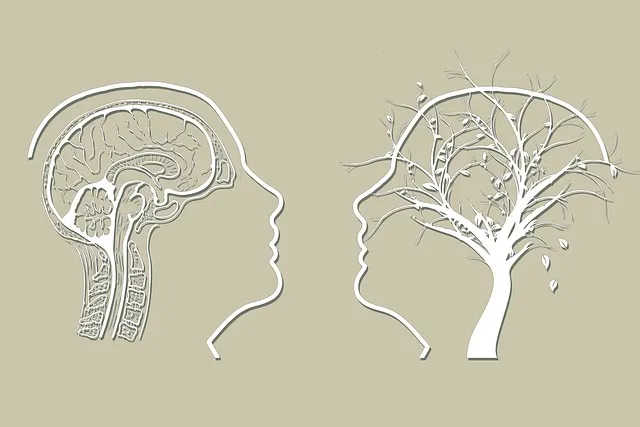Kaiser Permanente mental health services in Parker offer a unique, comprehensive approach to trauma support. By combining evidence-based therapies such as CBT and EMDR with self-care practices and compassion cultivation techniques, they empower individuals to recover from trauma and improve their mental health. Community engagement through education programs and podcasts further strengthens support networks and reduces stigma. This holistic model, integrating diverse therapeutic approaches, is a key differentiator, aiming to cater to individual needs while fostering community resilience, as exemplified by Kaiser Permanente in Parker.
Trauma is a significant public health concern, affecting individuals across diverse communities. This article explores comprehensive trauma support services, focusing on understanding its far-reaching impacts and the evolving landscape of care. We delve into the innovative approaches taken by healthcare giants like Kaiser Permanente, highlighting their trauma-informed practices. Additionally, we examine Parker’s role in trauma recovery through therapeutic interventions and community engagement. The piece concludes with best practices and future directions for enhancing trauma support services.
- Understanding Trauma and Its Impact: A Foundation for Support Services
- Kaiser Permanente Mental Health: An Overview of Their Trauma-Informed Approach
- The Role of Parker in Trauma Recovery: Therapeutic Interventions and Community Engagement
- Enhancing Trauma Support: Best Practices and Future Directions for Comprehensive Care
Understanding Trauma and Its Impact: A Foundation for Support Services

Trauma is a profound and complex experience that can have lasting effects on an individual’s mental health and overall well-being. It stems from various sources, including but not limited to, accidents, violence, or experiencing or witnessing distressing events. Understanding trauma is a crucial step in establishing effective support services. According to Kaiser Permanente mental health experts, trauma impacts the brain’s structure and function, often leading to difficulties with emotional regulation, flashbacks, and avoidance behaviors.
In response to this, Parker has developed innovative mental wellness coaching programs that focus on building resilience and promoting self-care practices. These initiatives are designed to empower individuals in navigating their traumatic experiences and fostering mental wellness. By combining evidence-based therapies and tailored support, these services aim to help people process trauma, enhance coping mechanisms, and reclaim control over their lives.
Kaiser Permanente Mental Health: An Overview of Their Trauma-Informed Approach

Kaiser Permanente Mental Health, a leading healthcare provider, has implemented a comprehensive and trauma-informed approach to care, particularly in their Parker location. This means they prioritize understanding and addressing the impact of traumatic events on individuals’ mental well-being. Their model is designed to foster a safe and supportive environment, ensuring that every patient receives care tailored to their unique needs.
The organization recognizes the importance of Trauma Support Services and incorporates Self-Care Practices and Compassion Cultivation Techniques into their treatment plans. By doing so, Kaiser Permanente aims to empower individuals to manage trauma’s aftermath effectively. This holistic approach encourages patients to develop coping strategies, promote self-compassion, and cultivate resilience, ultimately leading to improved mental health outcomes.
The Role of Parker in Trauma Recovery: Therapeutic Interventions and Community Engagement

In the context of trauma support services, Parker, often associated with Kaiser Permanente mental health initiatives, plays a pivotal role in facilitating recovery through therapeutic interventions and community engagement. These services are designed to help individuals navigate their traumatic experiences and promote mental wellness. Therapeutic approaches employed by Parker may include evidence-based treatments like cognitive behavioural therapy (CBT), eye movement desensitization and reprocessing (EMDR), and trauma-focused care, which aim to reduce stress and help individuals process and overcome their trauma.
Community engagement is another crucial aspect of Parker’s strategy, leveraging the power of support networks to foster mental health. This involves organizing Mental Wellness Podcast Series Productions that provide valuable insights and share recovery stories, as well as designing Mental Health Education Programs to raise awareness and reduce stigma. By combining these initiatives with access to Kaiser Permanente’s resources, Parker ensures a holistic approach to trauma recovery, addressing both individual needs and community resilience.
Enhancing Trauma Support: Best Practices and Future Directions for Comprehensive Care

In enhancing trauma support services, best practices emerge from organizations like Kaiser Permanente mental health services in Parker, which prioritize comprehensive care. One key strategy is integrating various therapeutic approaches, such as incorporating Stress Management techniques alongside traditional counseling to address the complex needs of individuals who have experienced trauma. By fostering a holistic environment, these services aim to facilitate Emotional Healing Processes, ensuring that patients not only cope with their past experiences but also develop adaptive coping mechanisms for future challenges.
Furthermore, Social Skills Training is increasingly recognized as an essential component of trauma support. This training equips individuals with the necessary skills to navigate interpersonal interactions, build supportive relationships, and improve their overall well-being. As research continues to evolve, future directions in trauma support may involve innovative technologies and digital interventions, building upon the foundational best practices established by organizations like Kaiser Permanente to provide accessible, effective care for those affected by traumatic events.
In conclusion, trauma support services are indispensable for fostering recovery and resilience. By understanding the profound impact of trauma, organizations like Kaiser Permanente Mental Health have pioneered trauma-informed approaches, as evidenced by their comprehensive care models. Parker plays a pivotal role in this process through effective therapeutic interventions and community engagement. Looking ahead, adopting best practices and continuous innovation, especially in integrating services, will ensure enhanced trauma support, ultimately benefiting individuals on their path to healing and wholehearted living.






